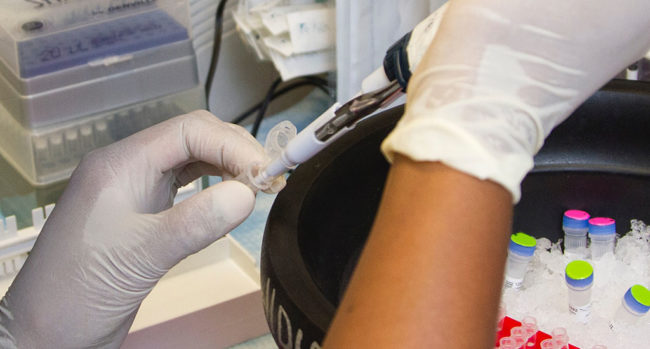The NICD is responsible for development and maintenance of guidelines around laboratory testing for COVID-19. Please note that these will be revised in response to the progress of the pandemic in South Africa. We will continue to provide you with updates in this regard. Updates will be based on official NICD and NDOH updates.
Official resources:
NICD website: http://www.nicd.ac.za
COVID-19 information website: https://sacoronavirus.co.za
Coronavirus 24-hour Hotline: 0800 029 999
Coronavirus WhatsApp: 060 012 3456
Official guidelines for testing
At this time, ONLY those displaying symptoms will be tested.
Note to employers in Critical & Essential services companies:
We have been made aware that some employers are requesting that their staff are tested before coming to work. Please note that this is not required if your employee is not displaying symptoms associated with COVID-19. This approach is also wasteful of scarce resources, and it does not provide assurance, since the employee may become infected at some point after the test is done.
Currently, the following criteria is being used to determine if a person requires testing:
1. A person displaying a history of symptoms: Persons with acute respiratory illness with a sudden onset of symptoms such as a cough, sore throat, shortness of breath or fever [≥ 38°C (measured) or history of fever (subjective)] irrespective of admission status;
AND
2. In the 14 days prior to onset of symptoms, met at least one of the following criteria: Were in close contact with a confirmed or probable case of COVID-19 infection, OR;
a. Had a history of travel outside of South Africa, OR;
b. Worked in, or attended a healthcare facility where patients with COVID-19 infections were being treated, OR;
c. Admitted with severe pneumonia of unknown cause or has Acute Respiratory Distress Syndrome (ARDS).
Even if you’ve travelled to an affected country or have had contact with someone with a suspected or confirmed COVID-19 infection, you will not be tested unless you display symptoms; there is currently no testing on asymptomatic patients. You must, however, immediately place yourself into 14 day self-quarantine, to prevent further transmission of the virus to other people, in case you are infected. If during this time you develop the symptoms below, please consult with your doctor or an emergency department, in order to be tested for COVID-19.
Steps to follow to be tested if you are displaying symptoms
1. Immediately self-quarantine. Further details on this below.
2. Call your doctor or an emergency department and they will assess you in determining if you meet the NICD case definition.
3. Your doctor will guide you on the process. They will either collect the samples themselves and send them to the laboratory for testing or refer you to a designated COVID-19 sample collection site.
4. Complete the required documentation, in full, including your doctor’s contact and medical practice details, before being tested. Take the completed forms with you to the test. The labs are not able to perform the test unless you provide them with these completed forms and a referring doctor’s details. Your doctor will send you the forms that you will need to take with you. Alternatively, you can access the required NICD Patient Under Investigation (PUI) form, which includes the COVID-19 Contact Line List here: http://www.nicd.ac.za/wpcontent/
uploads/2020/02/COVID_19_PUI_Form_v3_Contact_list_v5_Elect.pdf
5. It is important to keep others safe. Where possible, please wear protective clothing, such as gloves and a mask, and take hand sanitiser and your own pen.
6. The test samples required are an oropharyngeal (throat) swab and a nasopharyngeal (nose) swab.
7. After sample collection, return to self-quarantine until your doctor contacts you with your result. This may take up to 72 hours.
Self-quarantine steps and practices
1. Stay home. Only go out if you need medical care.
a. Don’t go to work, shops, or public areas. Avoid using public transport, or taxis.
b. Separate yourself from other people in your home. If you can, use a separate bathroom.
c. Use face masks to help prevent the spread of the disease to others.
d. Cough or sneeze into the fold of your elbow. Alternatively, cover your mouth and nose with a tissue when you cough or sneeze.
e. Clean your hands often. With soap and water for at least 20 seconds or with an alcohol-based hand sanitiser that contains 60-72% alcohol.
f. Avoid touching your eyes, nose, and mouth.
g. Clean surfaces often, this includes counters, table tops, doorknobs, bathroom fixtures, toilets, phones, keyboards, tablets, and bedside tables.
2. Monitor your symptoms: Fever, cough, shortness of breath.
3. Get medical attention as soon as possible if you become ill.
4. Make sure you know, and follow, the steps to seeking care.
